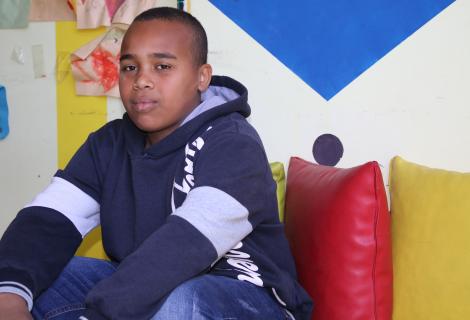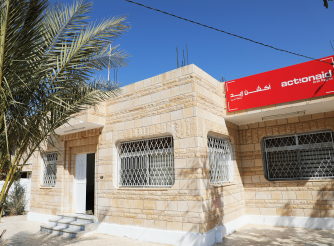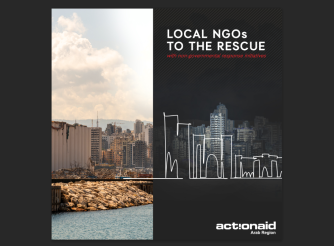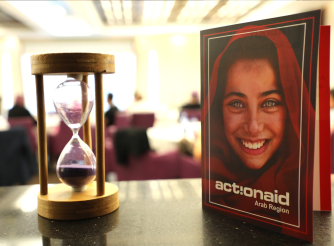A Firmer Personality

Mohammad is a 11-year-old Jordanian boy living within a small family. Mohammad’s attitudes changed completely when he started attending the psychosocial support activities in ActionAid Community Centre in Zarqa.
Mohammad is on the seventh grade in a military school in his community, he lives with his mother father and his little sister who is one year younger than him. Mohammad father is a government retirement employee, his mother was working but stopped to take care of her children when they were small. The family lives on a low income from the father salary.
The military school is different from any other school, the environment is strict, Mohammad didn’t dislike his school, but it was difficult for him to have friends easily. Mohammad spent two months as part of the psychosocial support activities as part of TCC project in ActionAid’s Zarqa community center, “I was shay at the first of day of the sessions, I didn’t want to talk to anyone, I was silent the whole day”, Mohammad explained. He only had some few friends at school, and the sessions were a chance for him to meet new friends, Mohammad said: “the sessions gave the opportunity to help me meet new friends, it was hard at first but afterword it was easy”.
In addition, Mohammad added: “one of the most excited activity he did was puppet making I enjoyed creating an imaginary character from my own head”. One of the attitudes that Mohammad’s mother notices was the way he behaves with his sister, he didn’t support her on school work but now he does. Mohammad Mother’s said: “Mohammad is a shay child, when we have guests over, he didn’t welcome them he used to stay at his room, but now he sits with them which is something I really admired”.
The psychosocialactivities implemented in ActionAid’s community center in Zarqa governorate north Jordan, aim to increase children's social and psychological well-being, through objected oriented activities using art tools (Art (drawing), Drama/ Theatre, Music/ RAP, and Puppets Theatre), in order to process difficult memories and find strength to believe in the future and trust their own abilities. Activities are led by a trained youth facilitator.
Youth are trained on different techniques and methods to handle different child behaviors. In addition, they are also trained on leadership skills, supporting them to take more of a role in their communities by leading campaigns or community initiatives to improve social cohesion amongst Syrian refugee and host communities. The aim is to create more cohesive communities for the children’s future.



